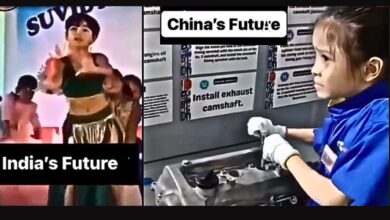UNICEF India announced its partnership with SAP India: improving Indian youth’s employability skills
Today on 15 July, to provide career counseling to the youth of the nation UNICEF India announced its partnership with SAP India. It is done for improvement in their employability skills in an era of COVID or post-COVID.
Today is World Youth Skills day. An initiative to provide occupational skillset and digital education to the reserved youth of the nation will be taken through the collaboration of UNICEF with YuWaah (Generation Unlimited) makes the day worth more. This collaboration has an aspiring aim to throw the light of the impact on 1 million people by the end of the year 2022. This collaboration will be solely focussing on the improvement of life skills as we as digital skills the young aspiring minds.
Narendra Modi at the Skill India event
Today’s buzzwords:
— Narendra Modi (@narendramodi) July 15, 2020
Skill.
Re-skill.
Upskill.#5YearsofSkillIndia pic.twitter.com/WQCqaBbYCS
Today through a video message said a relevant mantra which is very much applicable during this traumatized situation of coronavirus pandemic, “skill, reskill and upskill.” He talked about the changing work culture and how the youth is adapting to newly upgraded digitalization.
Skill is timeless.
Skill is unique.
Skill is a treasure that nobody can take away.
Skill is self-reliance, it not only makes one employable but also self-employable. #5YearsofSkillIndia pic.twitter.com/1DxjvNsEfr— Narendra Modi (@narendramodi) July 15, 2020
The Prime Minister said that “Skill grows with experience.” he further laid focussed on how skill plays an important role in an individual’s life. He beautifully expressed how the skill is not just a medium to earn a living but skill is a “driving force” for a person’s happiness and excitement.
Knowledge and skill are two different things.
Do you know who taught me the difference well? It was a mechanic in a remote, tribal-dominated area where I had gone years ago. #5YearsofSkillIndia pic.twitter.com/RZraXPGSNJ— Narendra Modi (@narendramodi) July 15, 2020
He explains the power of skill by narrating his own life experience. He described the huge difference between knowledge and skill with a daily life practical example.
The world needs skilled hands and we in India have the talent-force to cater to these global needs. #5YearsofSkillIndia pic.twitter.com/V94f48UqU6
— Narendra Modi (@narendramodi) July 15, 2020
Through his speech, he also threw light on the need for skill in today’s developing world. He said how the youth can get information about the demand for skill on an international platform. Every sector demands skill, and knowledge about the demand can provide huge career options for the youth.
Inspired by his speech and witnessing the great collaboration of UNICEF it can be seen how the youth needs to be given a path of skill development. The youth residing in rural areas faces a vulnerable situation when it comes to career and employment opportunities because of the restricted access to skills, training, information, or opportunities to participate completely in the country’s modernizing technology which is driving its economy.

UNICEF representative in India, Yasmin Ali Haque said that “The Unicef- Yuwaah- SAP India partnership will empower young people to help them harness their creativity, problem-solving and leadership to make a difference in their lives and in their communities.” Yasmin also said that “this partnership will address urgent challenges young people face by equipping them with life skills, social innovation, and career guidance.”
To make the most effective use of technology can be done to address poor learning levels, poor life skills, low retention rates, and gender inclusion, says the evidence. The reports say that country’s aggregate ration of learner computer is 1:89 and this suggests inequitable access in schools located in rural areas of the nation.
The Head of CSR at SAP, Alexandra Van Der Ploeg said that “Quality education and digital inclusion have never been more important. COVID-19 has exposed the fragility of access to education and this couldn’t be more relevant to India which has the highest number of young people.”
 She also said that “Together with UNICEF in support of the UN’s Generation Unlimited initiative, we can use the power of innovation to solve social issues and help our youth through education, workforce readiness, and entrepreneurship.” “In true SAP spirit, our unique partnership with UNICEF will not only maximize our collective impact but inspire young people in India and across the globe to help the world run better.”
She also said that “Together with UNICEF in support of the UN’s Generation Unlimited initiative, we can use the power of innovation to solve social issues and help our youth through education, workforce readiness, and entrepreneurship.” “In true SAP spirit, our unique partnership with UNICEF will not only maximize our collective impact but inspire young people in India and across the globe to help the world run better.”
If the opportunities for skill development are not given to the youth, they won’t be able to support and connect themselves to social causes that will help in the development of a country, she said.
{Alexandra’s statement source: Voice and Data}
Coronavirus has led to disruptions in economic, educational, and social spheres of life, that have thrown the country’s youth into severe challenging situations.




